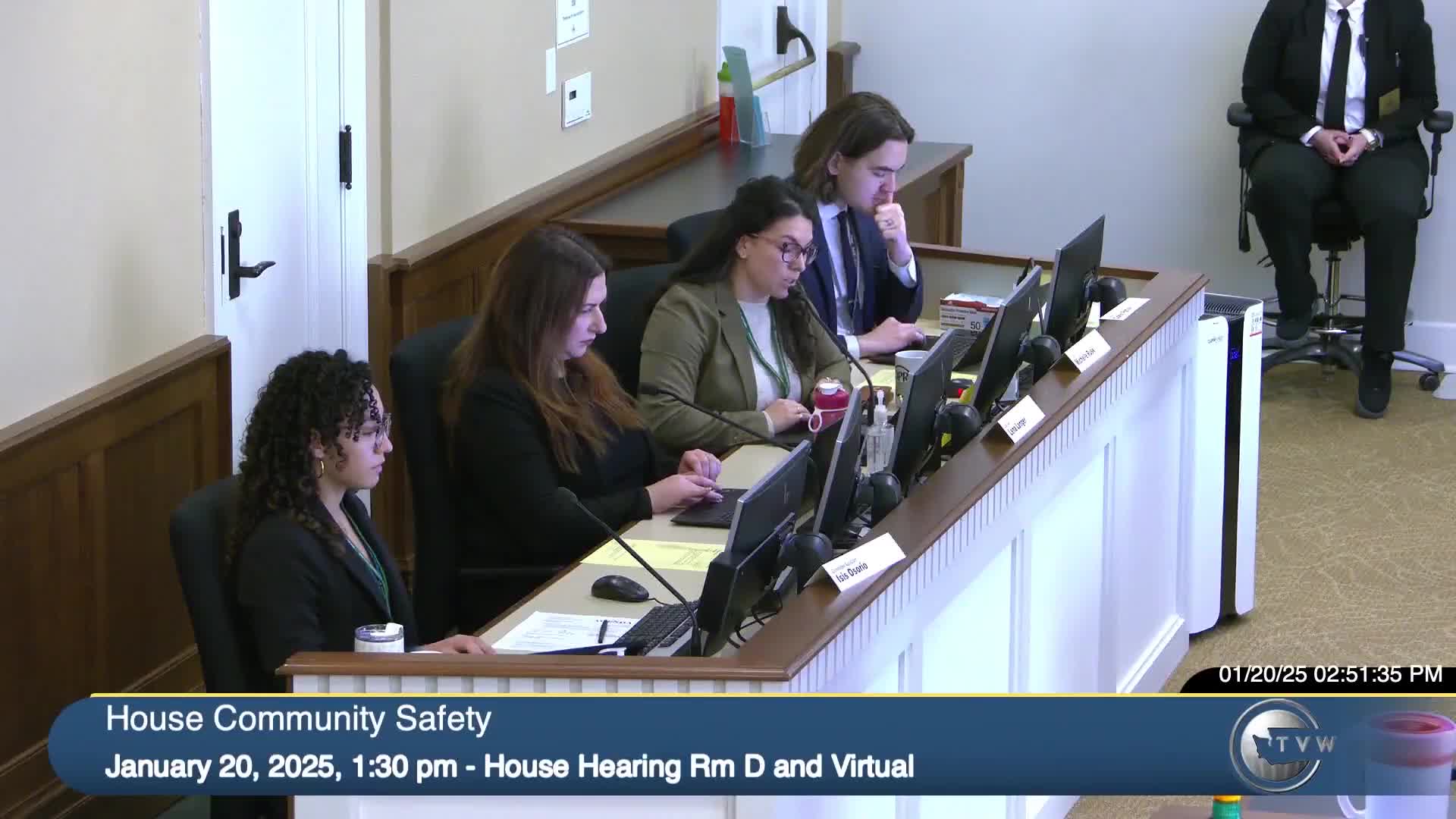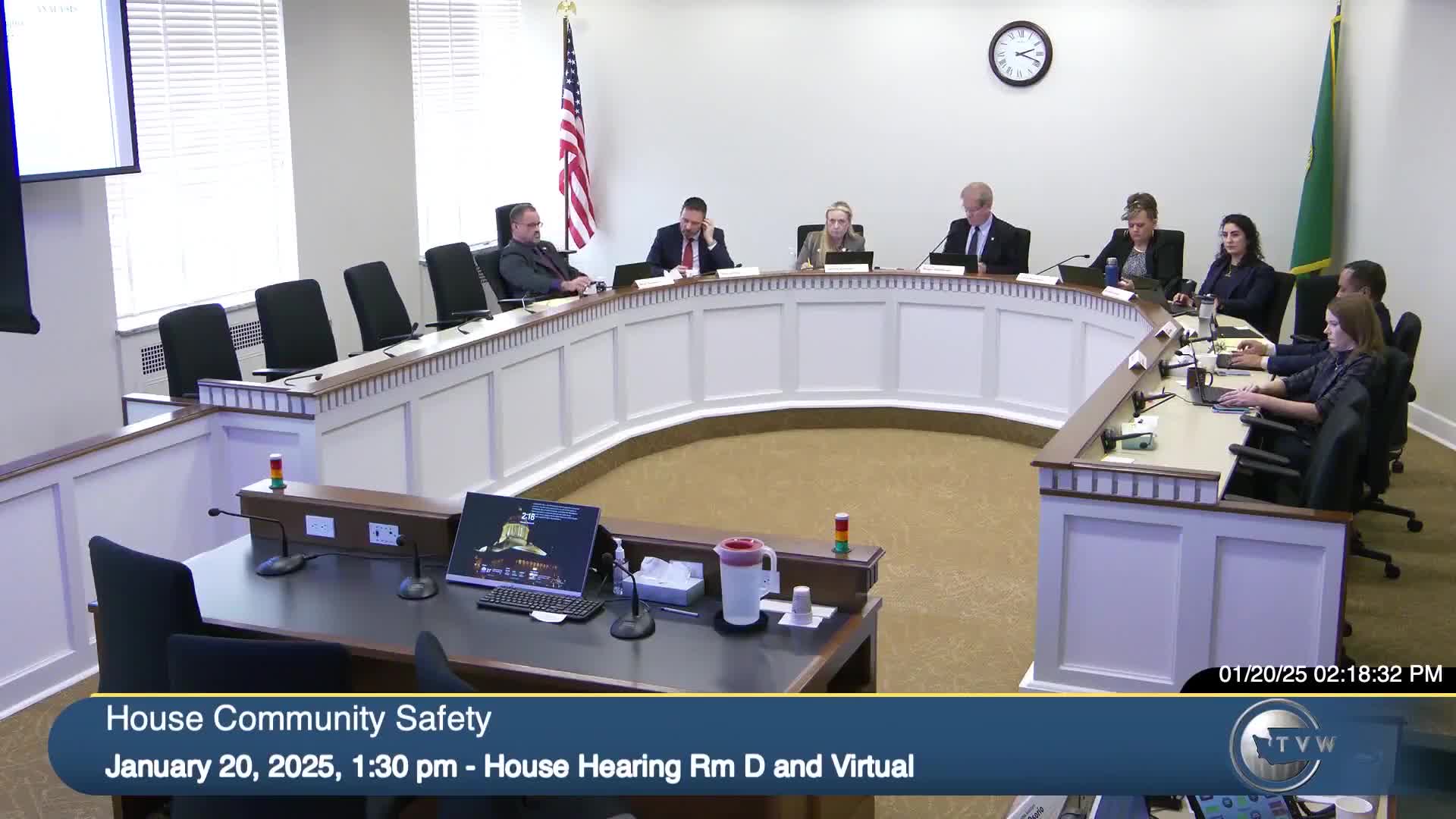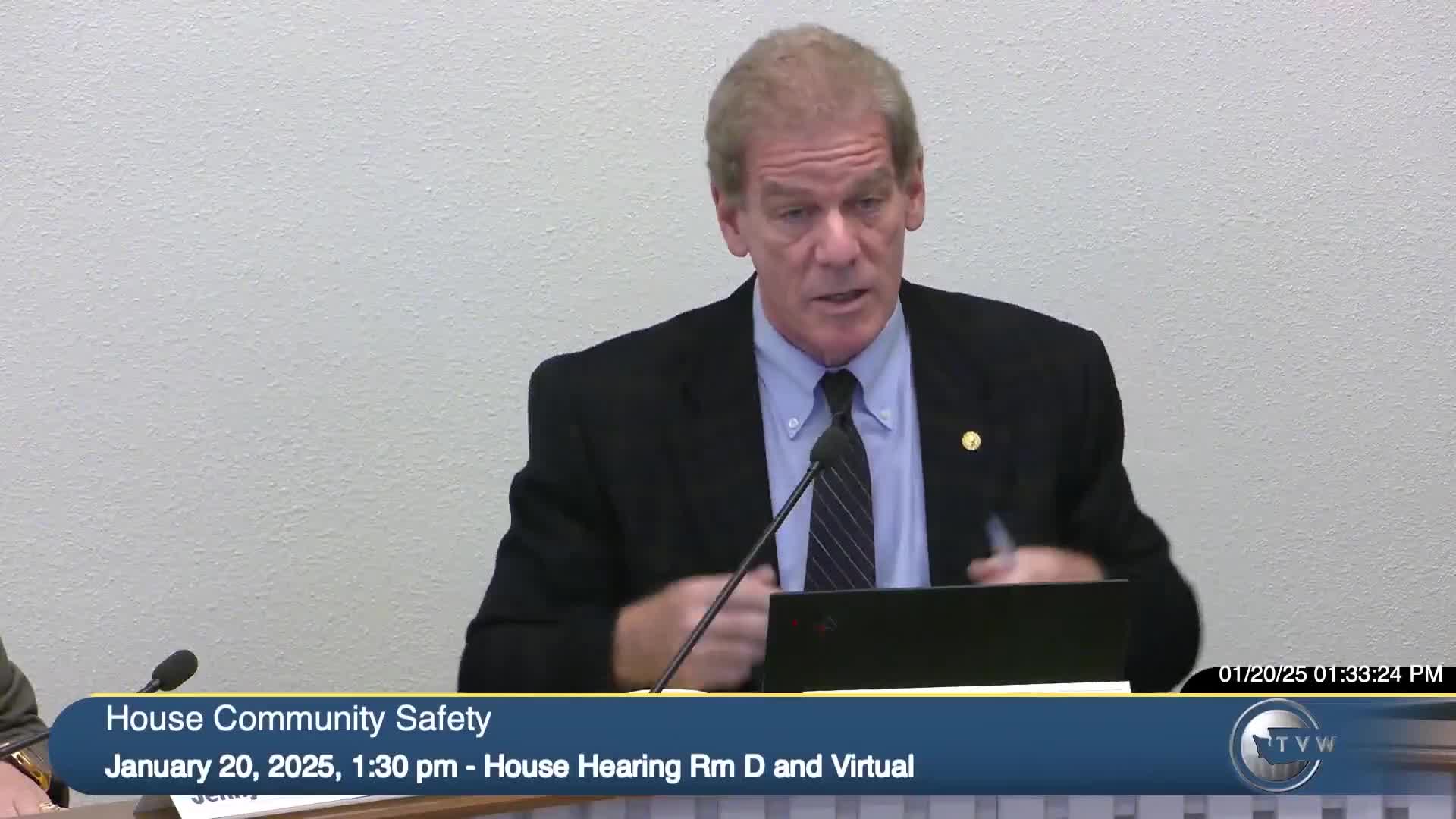Article not found
This article is no longer available. But don't worry—we've gathered other articles that discuss the same topic.

Panel Debates HB 1178 to End Mandatory Stacking of Weapon Enhancements and Make Enhancements Eligible for Earned Release

Hearing on HB 1317: Proposal to Expand 'Second Look' for Offenses Committed Before 21 Draws Support and Concern

